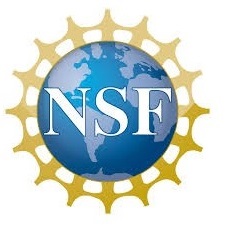Susan Eliazer, Ph.D., Assistant Professor
Project: Coupling mechanical signaling to stem cell fate and function
Mentor: Susan Eliazer, Ph.D., Assistant Professor
Location: Department of Biomedical Sciences, School of Medicine & Health Sciences
Description: All living cells and tissues in the human body are continuously exposed to mechanical forces from their environment. Cells possess the ability to sense and respond to the mechanical forces. Abnormal cell and tissue response to mechanical forces contributes to the etiology and clinical presentation of many diseases such as Laminopathies, Muscular Dystrophies and Aging, for which there is no cure. Tissues with high levels of mechanical stress are the most affected such as cardiac and skeletal muscle. Skeletal muscle resident stem cells play an important role in tissue maintenance during homeostasis, and help to repair and regenerate the tissue upon injury. In disease contexts, the stem cells lose their potential to function. My lab’s objective is to identify the molecular mechanisms of how a stem cell integrates mechanical signaling with gene expression to generate biological responses (fate and function) in physiological conditions and in disease. We propose to delete LINC complex members such as Nesprin and Sun, and nuclear lamina proteins such as Lamin A/C, which are part of the mechanical signaling pathway, specifically in stem cells and identify the mechanism of how altered stem cell mechanics lead to disease progression. We will use a combination of genetic mouse models, high resolution confocal microscopy, high throughput genomic assays and live cell imaging to disrupt genes, visualize cellular and nuclear dynamics, and identify downstream molecular mechanisms by which skeletal muscle stem cells couple mechanical signaling to stem cell fate and function. Successful completion of these studies will shed light on the underlying mechanism of mechanotransduction, identify molecular targets and have a translational impact on curing diseases.

